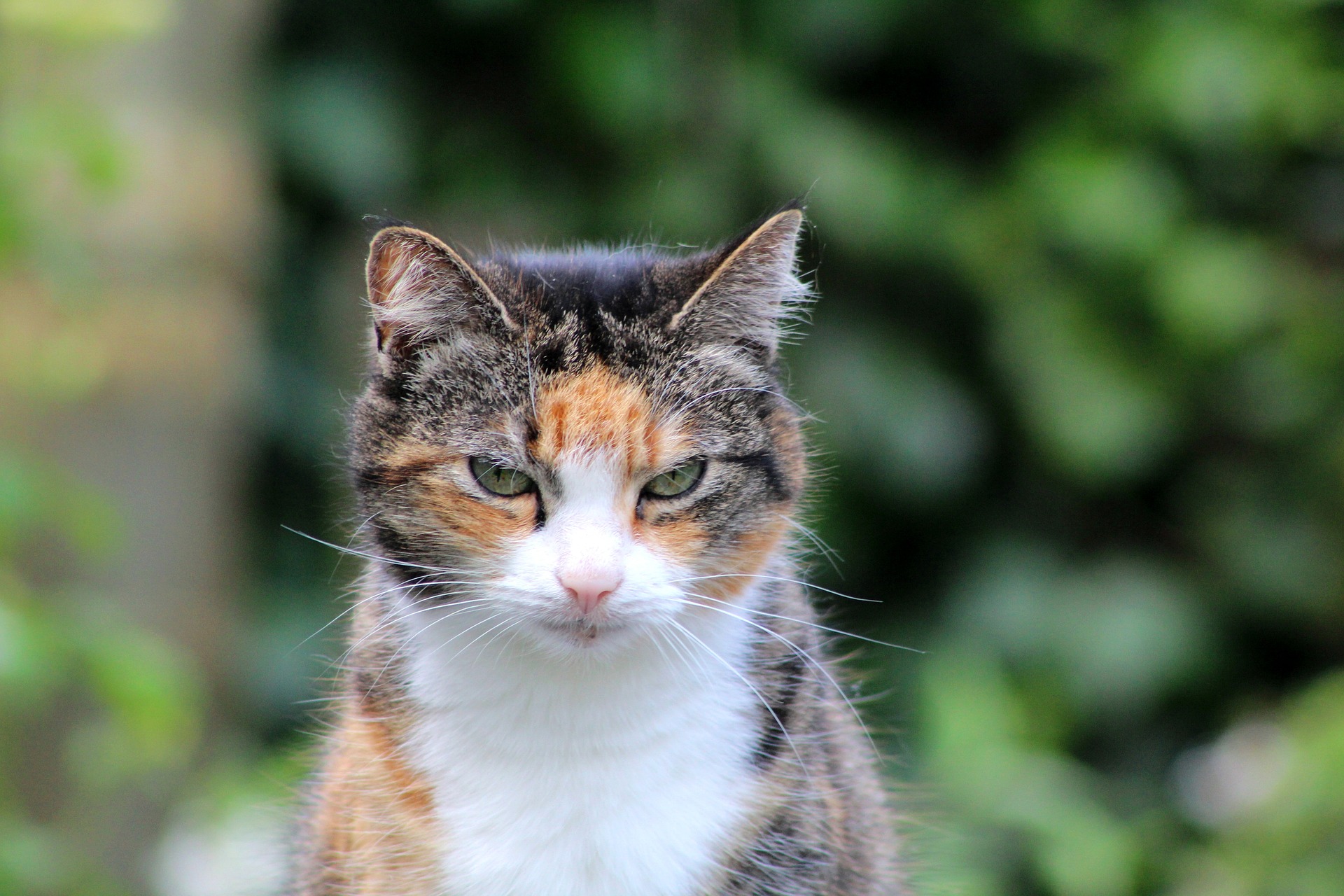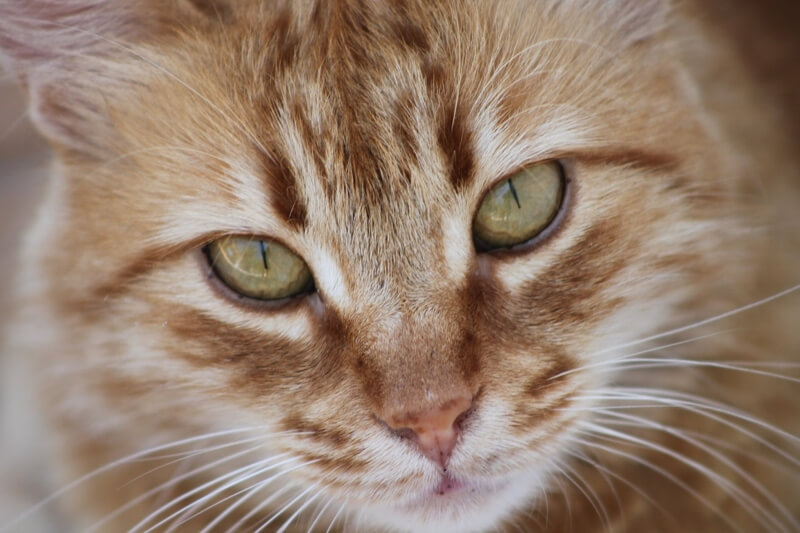lymphoma in cats australia
Prospective study of 61 client-owned cats with naturally-occurring lymphosarcoma subjected to multi-agent chemotherapy andor surgery. Cats with FeLV are 62 times as likely to develop malignant lymphoma as those without the virus and cats with both FeLV and FIV are 77 times more.

Feline Leukaemia Virus Perth Cat Hospital Perth Cat Vets
Other signs depend on the organ affected by the tumour and can include.

. In addition to being present in the blood there are accumulations of lymphocytes. Lymphoma is found to be responsible for around 90 percent of blood cancers and account for about 33 percent of all tumors in cats. Lymphoma which is also known as malignant lymphoma and lymphosarcoma is the single most common cancer that affects cats.
Ad We Offer the Same Medications As Your Vet at Great Prices. It starts in lymphocytes which are cells of the immune. Cancer is caused by a mutation in the DNA of a cell causing abnormal cell function or growth.
However lymphoma more commonly arises from other tissues in the body. Unlike the high grade lymphoma the low grade lymphoma has a slower evolution and typically the prognosis is more favorable in cats that are diagnosed with this type of lymphoma. Vet formulated to support your pets complete body in the fight against cancer.
Lymphoma is classified by the location of the disease eg. Haematological analysis usually included. Ad Get NHVs Cancer Fighter Pack for your cat and help support the immune system naturally.
A full medical evaluation is required to make a lymphoma diagnosis. The main signs of lymphoma in cats are vague illness weight loss and reduced appetite. Lymphoma is one of the most common cancer in cats.
J Feline Med Surg. There are three subtypes based on mitotic rate and cell type determined by examination. Skip to main content.
There may be a linkage between feline leukemia virus FeLV and feline cutaneous lymphoma. Lymphoma is a cancer that can affect any breed of dog but there are certain breeds that have a high predisposition to this disease. Physical exam findings may be normal though thickened intestines or abdominal masses may be felt.
Lymphoma may involve neoplastic proliferation of T or B or non-Bnon-T type lymphocytes occurring primarily in the bone marrow lymph nodes and visceral organs. Bloodwork is likely to be normal in cats with gastrointestinal. Lymphoma in cats is a cancer of the lymphocytes which are cells that are involved with the immune system.
Cat owners will notice weight loss poor appetite and possibly vomitingdiarrhea which are common clinical signs of multiple cat illnesses like inflammatory bowel disease pancreatitis and diabetes. Signs of cancer in cats may be subtler and more chronic and include. The low grade lymphoma may take the form of lymphocytic.
In the case of lymphoma this is caused by an abnormal proliferation of lymphocytes a type of white blood cell. Feline cutaneous lymphoma can present quite a variety of symptoms including. Alimentary lymphosarcoma occurs in the stomach intestines liver and spleen.
Lymphoma is a cancer of a white blood cell called a lymphocytes. Because cat lymphoma typically occurs. Border Collies Boxers Bullmastiffs Cocker Spaniel Golden Retriever and there are more.
Of 118 affected cats presented to the authors over a 18-month period 97 were evaluated haematologically and 87 biochemically. It may arise in lymphoid tissues such as lymph nodes spleen and bone marrow. Add your Vet and Pet Rx info then Chewy Handles the Rest.
VIN Public Log out. The average age of cats presenting with lymphoma in australia is 11 years however there is a wide range from 1 year to 20 years. One of the most common forms of this disease in cats is lymphoma.
Lymphocytes are the second most important white blood cell behind neutrophils. Diarrheasofter stool than normal eg pudding consistency Swelling under the skin or unusual lumps or bumps on the body. Chewy Pharmacy is that Simple.
A prospective multi-institutional study. Lymphocytes are present throughout the body so cats can develop lymphoma in multiple organs. Gastrointestinal tract nasal cavity mediastinal and the size of the lymphocytes large cell versus small cell.
Lymphoma is a cancer of the cells of the immune system called lymphocytes. Lymphocytes are the second most important white blood cell behind neutrophils. The disease itself is usually first noticed as a lump or lumps located primarily in 3 obvious locations.
Intended for healthcare professionals. B and T cells. Only about 3 of lymphoma cases in cats occur in the skin.
Lymphoma is the abnormal proliferation of lymphocytes which are one of the main types of white blood cells involved in immunity. Lymphoma is the most common cancer in the cat causing 33 of cat tumours 1. The average age of cats presenting with lymphoma in Australia is 11 years however there is a wide range from 1 year to 20 years.
However modern treatment protocols can be highly effective in providing some control of the disease and it is possible for affected cats to have several years of normal life following treatment. Lymphoma is the second most common cancer for feline patients. It is characterized by an infiltration of the gastrointestinal tract andor associated lymph nodes with neoplastic cancerous lymphocytes.
Low grade lymphoma is a cancer that can originate in any area of the body where lymph nodes are present. Since these cells travel throughout the body lymphoma in cats is considered a systemic disease versus a localized one. As cutaneous lymphoma progresses the skin commonly becomes thickened reddened ulcerated and may begin to ooze fluid.
It occurs most frequently in cats already infected with feline leukemia virus FeLV or feline immunodeficiency virus FIV. Lymphoma is a solid tumour of a type of white blood cell lymphocyte that is involved in immune responses. To describe for the first time haematological and serum biochemical findings in cases of lymphosarcoma in Australian cats.
Clinical signs of lymphoma in the gastrointestinal tract include weight loss vomiting diarrhea and often either a decreased or increased appetite. Diarrhoea see other causes at the link Abnormal swellings. Lymphoma in cats has been connected with feline leukemia and though more cats are now being vaccinated against.
As with all varieties of this cancer GI lymphoma is a disease of the lymphatic system and targets cells called T-or B-lymphocytes. The most common anatomical form of lymphoma in cats is alimentary lymphoma AL. There are two forms of lymphocytes.
To determine the response of Australian cats with lymphosarcoma to chemotherapy andor surgery in relation to patient and tumour characteristics haematological and serum biochemical values and retroviral status. It is sometimes called lymphosarcoma. Gastrointestinal lymphoma refers to lymphomas where the cancer appears in the small.
Increased respiratory ratedifficulty breathing. Malignant Lymphoma in Cats. Feline lymphoma is an internal disease.
Lymphoma is one of the most common malignancies in cats and gastrointestinal or GI lymphoma in cats is an increasingly common problem. This is a cancer of the lymph nodes and can arise almost anywhere in the body. Lymphoma is the most diagnosed feline cancer.

Successful Management Of Feline Pemphigus Foliaceus With Pentoxifylline And Topical Hydrocortisone Aceponate Hobi Veterinary Medicine And Science Wiley Online Library

Lymphoma In Cats The Pet Oncologist

Pin On Helping Our Animal Friends

Pin By Pawshake Uk On Pawshake Uk Cats Cats Bella Older Cats

Cuterebriasis In Dogs And Cats Today S Veterinary Practice

How The Assisi Loop Helps Cats With Arthritis The Conscious Cat Cat Nutrition Cat Help Cats

The Flea Lifecycle Simplified Vet Medicine Cat Fleas Fleas

Taz Cat Pawshake Enfield Cats Taz Cute Cat

Chronic Intestinal Disease In Cats Figtree Veterinary Clinic

Feline Lymphoma Treatment Prognosis Litter Robot

Lymphoma In Cats Perth Cat Hospital Perth Cat Vets

My Cat Has Lymphoma What Does That Mean Vet Help Direct
Understanding Lymphoma In Cats

Chronic Intestinal Disease In Cats Perth Cat Hospital

Understanding Lymphoma In Cats

The 3 Most Common Cancers In Cats

Lymphoma In Cats Symptoms Diagnosis Litter Robot Cancer In Cats Feline Leukemia Litter Robot

